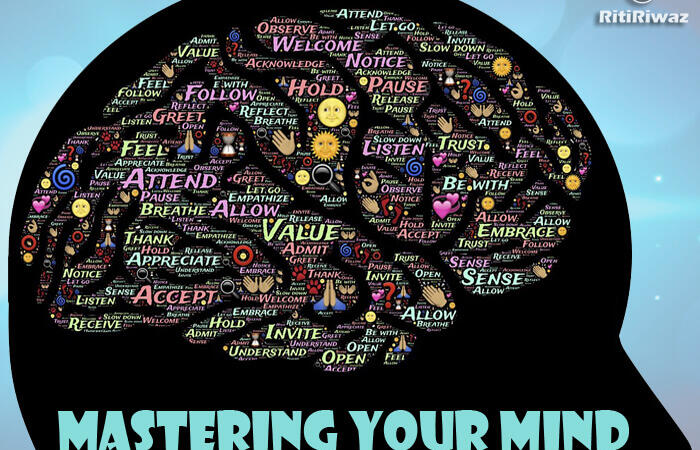Stress | Simple Way to Relieve Stress

Stress is a psychological response to events that upset our personal balance in some way. When faced with a threat, whether to our physical safety or emotional equilibrium, the body’s defenses kick into high gear in a rapid automatic process known as the “fight-or-flight” response. We all know what this stress response feels like heart pounding in the chest, muscles tensing up, breath coming faster, every sense on red alert.
The biological stress response is meant to protect and support us. It’s what helped our stone-age ancestors survive the life-or-death situations they commonly faced. But in the modern world, most of the stress we feel is in response to psychological rather than physical threats. Caring for a chronically-ill child or getting audited by the IRS qualify as stressful situations, but neither calls for either fight or flight. Unfortunately, our bodies don’t make this distinction. Whether we are stressed over a looming deadline, an argument with a friend, or a mountain of bills, the warning bells ring, and just like a caveman confronting a saber-tooth tiger, we go into automatic overdrive.
If you have a lot of responsibilities and worries, you may be running on stress a good portion of the time – launching into the emergency mode with every traffic jam, a phone call from the in-laws, or segment of the evening news. But the problem with the stress response is that the more it’s activated, the harder it is to shut off. Instead of leveling off once the crisis has passed, your stress hormones, heart rate, and blood pressure remain elevated.
Suggested Read: Hidden Connections
Furthermore, extended or repeated activation of the stress response takes a heavy toll on the body. Prolonged exposure to stress increases your risk of everything from heart disease, obesity, and infection to anxiety, depression, and memory problems. Because of the widespread damage, it can cause, it’s essential to learn how to deal with stress in a more positive way and reduce its impact on your daily life.
To get a handle on stress, you first need to learn how to recognize it in yourself. Stress affects the mind, body, and behavior in many ways – all directly tied to the physiological changes of the fight-or-flight response. The specific signs and symptoms of stress vary widely from person to person. Some people primarily experience physical symptoms, such as low back pain, stomach problems, and skin outbreaks. In others, the stress pattern centers around emotional symptoms, such as crying jags or hypersensitivity. For still others, changes in the way they think or behave predominate.
If you are in stress, you can take early steps to deal with the stressful situation before it – or your emotions – spiral out of control.
Also Read: How to Live a Healthy Lifestyle
Steps to a healthier, more Stress-free lifestyle.
1. Exercise Regularly
Do something to get your blood pumping. This keeps your heart and lungs healthy. Walk, jog, run, dance, bike, swim, play tennis or handball, bowl, take yoga, lift weights, try aerobics, hike, climb rocks, the options are endless. Just beware of competitive sports of you tend to become angry or anxious when playing to win. Pick a sport that will help you relax, not increase your stress.
Suggested Read: 10 Fitness Exercises You Can Do At Home
2. Adopt a Hobby
Have an activity that is strictly for your own pleasure. This could be singing, playing an instrument, painting, knitting, bird watching, beachcombing, photography, or ceramics, and the options are endless. Make this your chance to escape from the world for a while.
3. Stop Smoking
Many people light up when they are stressed, without realizing that this is making their stress even worse. The nicotine in tobacco causes a stress response in our bodies. If that is not enough to make you quit, think about all the stressful illnesses smoking contributes to, such as cancer, heart disease, and high blood pressure or think of the immediate effects like bad breath, yellowed teeth, wrinkles, and increased phlegm. If you are a smoker talk to your doctor, a nurse, or a friend about help in quitting. If you live or work around people who smoke, try to avoid their secondhand smoke.
4. Eliminate or Reduce Caffeine
A little pick-me-up in the morning may not be a bad thing, but relying too heavily on caffeine can put your body into stress overdrive. Caffeine stimulates a stress response in your body and too much can leave you feeling constantly stressed. When cutting back, remember that caffeine comes in other forms besides coffee like non-herbal teas, colas, chocolate, many pain-killers, and stay awake products so watch out what you put in your body.
How much Caffeine your body can handle
5. Eat Healthily
You are what you eat and sticking to a healthy diet will help keep your body strong. Reduce salt, which can lead to tension and high blood pressure, and eat plenty of fresh fruits, vegetables, and whole grains. Remember to eat regularly so you have enough energy. But try not to make your eating habits another stressful part of your life. Giving in to an occasional craving for a chocolate cookie or being rushed for time and eating a fast-food lunch is not the end of the world, as long as these are occasional lapses and not regular habits.
6. Sleep regularly and get enough sleep
Base your sleep on what you need, not the needs of others around you. If you need eight hours of sleep a night to feel good throughout the day, don’t worry that your spouse/ sister/ parents need less or more. Every person has different sleep needs, and the majority of Americans do not get enough sleep. Once you know how many hours you usually need to sleep try to stick to your regular sleep schedule so that you can get the most from your sleep time.
Also Read: Tips for a good night sleep
7. Learn a Relaxation Technique
Count your breath, Belly breathe, make funny faces, and wiggle your toes. find a habit or technique that helps you relax on a day-to-day basis. Just make sure it’s one you can do regularly without it affecting your job, school, family, or social life. Screaming at the top of your lungs may feel like great stress relief, but it’s not going to get you any promotions or win you any friends.
Also Read: Role of Humor in Life
8. Avoid overusing Drugs and Alcohol
If you take medication, be sure to use a proper dose. If you drink alcohol, limit the amount you drink to no more than 1-2 drinks per day. Avoid all illegal substances, If you have an alcohol or drug problem, going through withdrawal can also cause stress, so be sure to work closely with your physician or a counselor when addressing your problem.
9. Write it down
One of the ways to handle stress is writing down about what you are stressed about and what you are grateful for. It will help you to focus on the problem and think about positive in your life.
10. Spend time with friends and family
Your social circle will help you get through your stressful times. Your friend network will give your self-worth and help you in tough times. Time spent with family and friends is a natural stress reliever so go out and make the most with your friends and family.
These are just some of the many ways you can reduce your stress. Visit your doctor, talk to a physical therapist or counselor, take an exercise class, check out a book on relaxation, or research other techniques online. Or you can come up with your own technique or activities, the important thing is to find what works for you. Something you feel comfortable doing, and can do easily and regularly and makes you feel better.
Suggested Read: Stress Management Techniques






